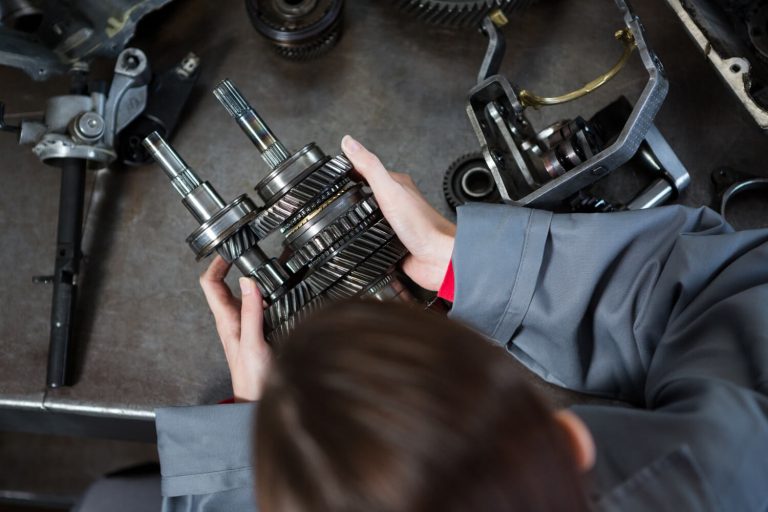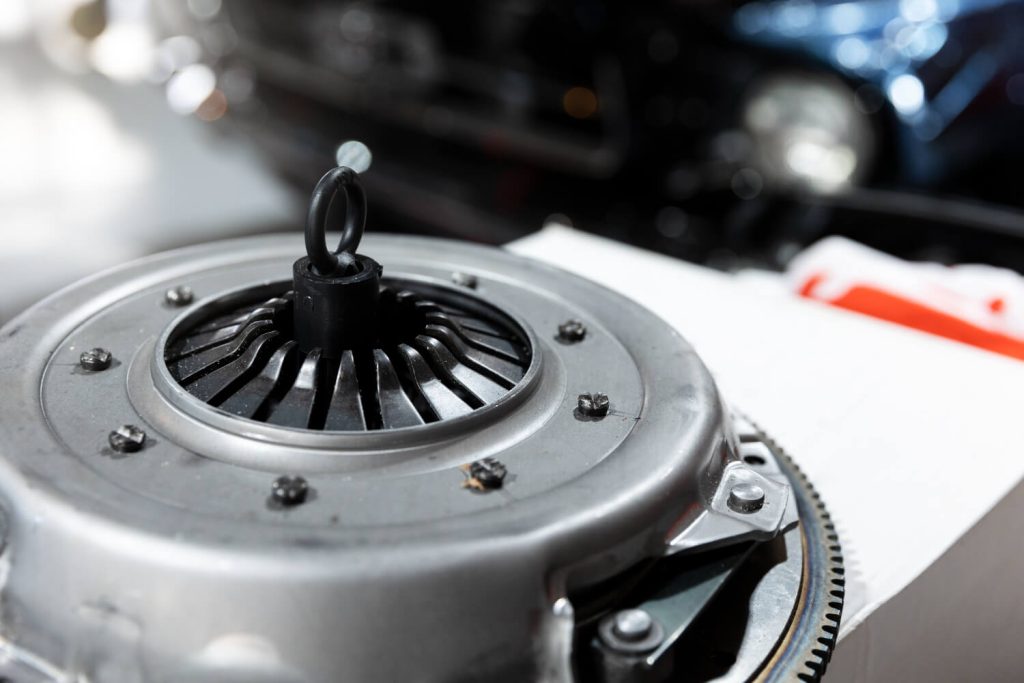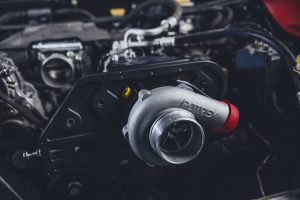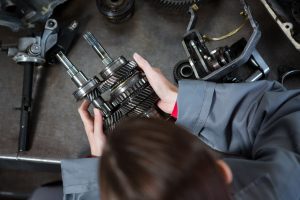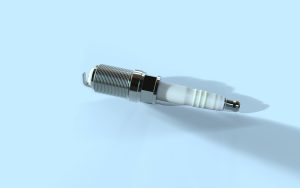Finding the precise problem when your car starts acting up can be frightening, particularly if it involves important parts like the torque converter and transmission. Both components are necessary for the operation of your car, and problems with one can result in similar symptoms, such as strange noises or slipping gears. However, bad torque converter vs bad transmission is a necessary topic.
To assist automobile owners, do-it-yourselfers, and auto enthusiasts in identifying the issue, this blog will dissect the main distinctions, typical symptoms, and troubleshooting procedures. You’ll know exactly what to look for and how to approach the problem successfully by the end of this article.
Table of Contents
ToggleWhat Does a Torque Converter Do?
Torque converter is an integral component of an automatic transmission system of automobiles. Its main function is to transmit the power produced by the engine to the gearbox system but at the same time enable the engine to operational even with the car standing still. Visualization: It is like a bridge that controls the exchange and also the drive of power.
When the torque converter goes bad, it can override this power flow leading to noticeable issues in your car.
What Does the Transmission Do?
Transmission is defined as the part of the car that handles change of the gears of your car as the engine transfers power to the wheels. Manual or automatic, the transmission is ever crucial for purposes of managing speed as well as torque while on the road.
A faulty transmission can afflict the operation of a car and could call for expensive service when not fixed in good time.
Signs of a Bad Torque Converter
Making the preliminary diagnosis of a bad torque converter entails being aware of the different signs. Here are the most likely signs of a failing torque converter:
1. Shuddering
There are times your car may vibrate or shake when accelerating or sometimes while at higher speeds. This is often a feeling akin to driving over bad terrain even though the ground the vehicle is on is relatively bad.
2. Slipping Gears
Most engines fail to engage or maintain the right gear when the torque converter is worn out or damaged. You may find the engine racing with an accompanying loud noise without corresponding increase in speed.
3. Overheating
Overheating may occur when the torque converter is unable to pass on transmission fluid in a proper manner or proportion as heat can become very dangerous. An overheated transmission, therefore, if not addressed, results in critical damage.
4. Extreme Noise
If the torque converter is bad, then it will usually make a grinding like noise or whistle while the car is in operation. Most of the times, the noise indicates worn out needle bearings or any other internal problems.
5. Infected transmission fluid
If the color of your transmission fluid is dark or is filled with particles, then this could indicate that there’s an internal damage on the torque converter. This should be checked through checking the transmission fluid dipstick.
Signs of a Bad Transmission
While some symptoms overlap, certain issues are more specific to a failing transmission. Be on the lookout for any of the following problems:
1. Difficulty Shifting Gears
If you’re having trouble shifting gears—whether it feels delayed, rough, or stuck—it’s a clear sign your transmission could be the source of the problem.
2. Burning Smell
A burning smell indicates your transmission fluid may be overheating due to worn-out components or a lack of proper lubrication.
3. Leaking Transmission Fluid
Finding transmission fluid under your vehicle is a clear red flag. This could point to internal damage within your transmission system, including seals or gaskets.
4. Noisy in Neutral
If you hear strange noises while your car is in neutral, it can point to issues inside the transmission system. Unlike the whining noise from a torque converter, these sounds may involve clunking or humming.
5. Check Engine Light
While this symptom is not transmission-specific, the illuminated check engine light might indicate trouble with your transmission. A diagnostic scan can help reveal the precise issue.
Also Read: Car Jerks between 1st and 2nd gear automatic Transmission: Ultimate Guide
How to Differentiate Between a Bad Torque Converter and a Bad Transmission
Since both components can produce overlapping symptoms, how do you know which one is causing the problem? Here are a few ways to differentiate the two:
- Pay Attention to Noise
- Torque converters usually produce whining or grinding noises.
- Transmissions often create clunking, humming, or buzzing sounds.
- Gear Slipping or Shuddering
If the problem occurs when accelerating or maintaining speed, it’s more likely linked to the torque converter. If the symptoms happen during gear shifts, it’s likely a transmission issue.
- Fluid Condition
Inspect your transmission fluid. Contaminated fluid with metal shavings may point to issues in the torque converter, while a burnt smell can indicate transmission problems.
Diagnosing the Problem
If you’re still unsure whether the torque converter or transmission is causing the issue, follow these troubleshooting steps or consult a local professional.
Check the Transmission Fluid
- Inspect the color and texture of the fluid. Healthy transmission fluid should be clear or reddish in color and free of debris.
- Top off your fluid level, as low fluid can cause multiple performance issues.
Use an OBD-II Scanner
Modern cars have onboard diagnostics (OBD-II) systems capable of identifying specific issues. Use a scanner to check for error codes related to the transmission or torque converter.
Perform a Stall Speed Test
A stall speed test can help pinpoint torque converter issues. This test requires putting your car in drive while holding the brakes and pressing the gas pedal. If the RPMs don’t match the expected range for your vehicle, the torque converter may be at fault.
Seek Professional Help
If you’ve tried these steps and still can’t determine the issue, it’s time to take your car to a trusted mechanic. Diagnosing complex problems like these often requires specialized tools and expertise.
Also Read: How to Bypass Ignition Switch
Preventing Future Issues
If you are now dealing with torque converter or transmission trouble, preventive maintenance may be your best defense against more serious difficulties in the future.
Change Transmission Fluid: Change your transmission fluid if it’s old or if the car’s compartment smells of burnt transmission fluid as recommended by the car manufacture.
Address Problems Early: No unusual sound or performance abnormality should be taken lightly. Fixing them early could mean just as much saving, when it comes to repair expenditures.
Schedule Regular Inspections: You must have your transmission system checked at least once a year by a skilled person.
Remember that Your Car is Also Speaking to You
It is important to know bad torque converter vs bad transmission to be able to solve car problems successfully. Primarily, you are in a position to save you time, money and some headache by identifying some of the symptoms, do some initial tests and leave the rest to a mechanic.
Its post is also useful for those searching for bad torque converter vs bad transmission chevy.

